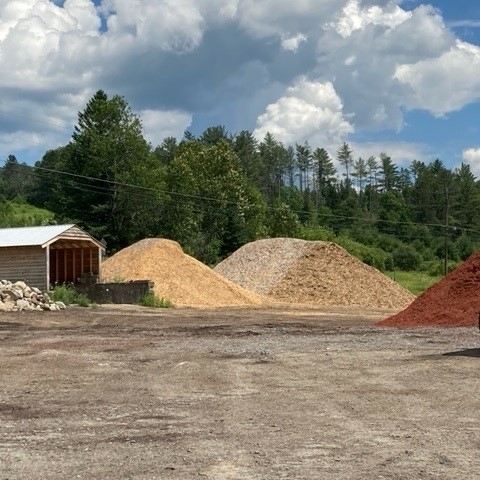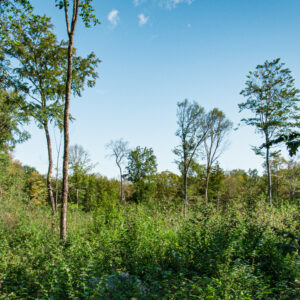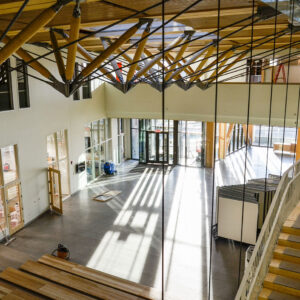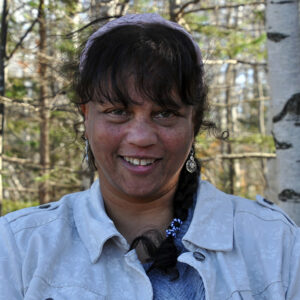Marketing Program Elevates Forest Story
Over the last seven months, the Center has worked with eight wood product companies to help them incorporate their “forest story” into their marketing to consumers. Businesses taking part in this program ranged from a logger who operates as a sole proprietor to a kitchen products company that has more than 50 employees.
Center Business Innovation Advisor Amy Robinson created the series to help wood product businesses develop a brand narrative that helps increase awareness about the importance of our working forests. “There is an interconnected relationship that exists between managing a healthy forest, harvesting to keep it healthy, and using those raw materials for wood products that we – as humans – use for shelter, heat, and comfort.”
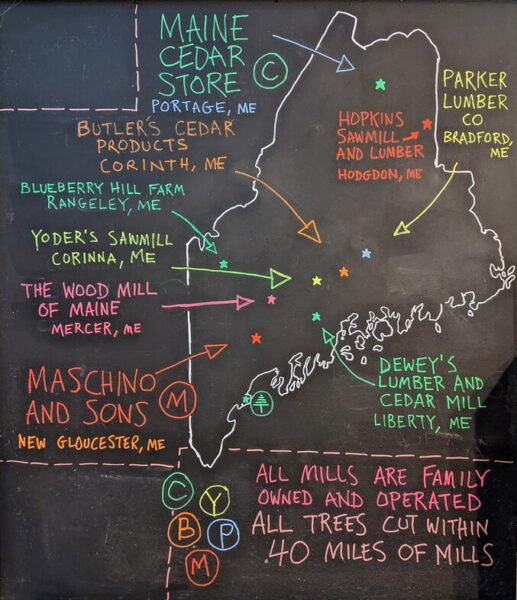
Telling Your Forest Story consisted of six online sessions that included guest speakers, who are leaders within the forest industry. The series looked at the forest industry through four different perspectives: the big picture of the forest economy driven by data, stewardship and forest management and the complexity of articulating the working landscape, chain of custody and certifications and the impact on consumer perceptions, and how wood product businesses put their guiding principles into practice.
“I loved the weekly sessions,” said Jennifer Friedland-Stora, co-owner of Lumbery. “The group was a melting pot of businesses large and small trying to figure out what their story is and how best to convey a message that truly represents what each of their businesses is about.”
In addition to the online component, businesses received up to 10 hours of marketing consultation with a consultant. This resulted in businesses being able to immediately employ their “forest story” into various elements of their marketing strategies.
“The sessions were like steppingstones getting us closer and closer to that message,” continued Friedland-Stora. “I learned that as much as the industry can do to promote sustainable forestry and practices, both small and large businesses will ultimately be the driving force to hammer that message home to the consumer. I knew the message and the practice we had at the Lumbery was changing the way people think, but this felt like we were being passed a torch and told collectively how important our role is to take this message to the masses. It was an awesome process to be a part of.”
The eight companies that participated included:
- Vermont Butcher Block Company, Burlington, Vermont, which produces butcherblock countertops and cutting boards;
- Timber HP, Madison, Maine, which produces wood fiber insulation;
- Treeline Terrains, Middlebury, Vermont, which produces custom 3D wood maps;
- Jones Wood Products, Loudon, New Hampshire, which offers logging services and building materials;
- Kirby Mulch, Concord, Vermont, which produces bark mulch;
- Vermont Natural Forest Products, Richford, Vermont, which produces wood pellets, wood shavings, sawdust, and bark mulch;
- Lumbery, Cape Elizabeth, Maine which is a hardware / lumber store that sources locally milled wood;
- JK Adams, Dorset, Vermont, which produces cutting boards and kitchen products
